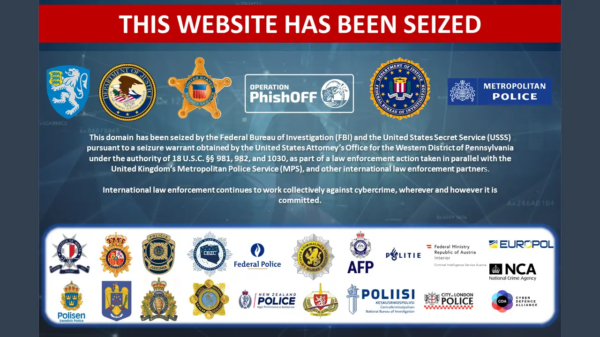US authorities this week announced that they seized 13 internet domains associated with DDoS attack services.
These DDoS-for-hire services allow users to launch powerful attacks that flood targeted devices with internet traffic to slow them down or prevent them from accessing the web.
The newly announced court-authorized seizure is the third wave of actions that US law enforcement has taken against DDoS-for-hire services, which are also known as ‘booter’ or ‘stresser’ services.
Data gathered from previous actions has shown that hundreds of thousands of registered users were using these services to launch DDoS attacks against financial institutions, government websites, school districts, universities, and other types of victims.
Of the 13 domains seized this week, 10 were reincarnations of services that US authorities seized in December 2022, in an operation that targeted 48 DDoS-for-hire services.
For example, one of the services disrupted in December, when it used the domain cyberstress.us, apparently reemerged on the website cyberstress.org, which was seized this week.
As part of its investigation into the domains, the Federal Bureau of Investigation opened or renewed accounts with each service and then tested them by launching DDoS attacks against computers controlled by the FBI.
The booter services, the authorities say, were operating as advertised, in some cases completely severing the internet connection despite the network’s large capacity.
In addition to the seizure, the US this week announced that four individuals charged in late 2022 in relation to DDoS booter services pleaded guilty earlier this year and are scheduled for sentencing this summer.
The defendants are Jeremiah Sam Evans Miller, 23, of San Antonio, Texas, who admitted to operating RoyalStresser.com; Angel Manuel Colon Jr., 37, of Belleview, Florida, who operated SecurityTeam.io; Shamar Shattock, 19, of Margate, Florida, who operated Astrostress.com; and Cory Anthony Palmer, 23, of Lauderhill, Florida, who operated Booter.sx.
The newly announced seizures are part of an ongoing international law enforcement effort named Operation PowerOFF, which aims to dismantle criminal DDoS-for-hire services worldwide.
Related: Thousands Access Fake DDoS-for-Hire Websites Set Up by UK Police
Related: Record-Breaking 71 Million RPS DDoS Attack Seen by Cloudflare
Related: Pro-Russian Group DDoS-ing Governments, Critical Infrastructure in Ukraine, NATO Countries
